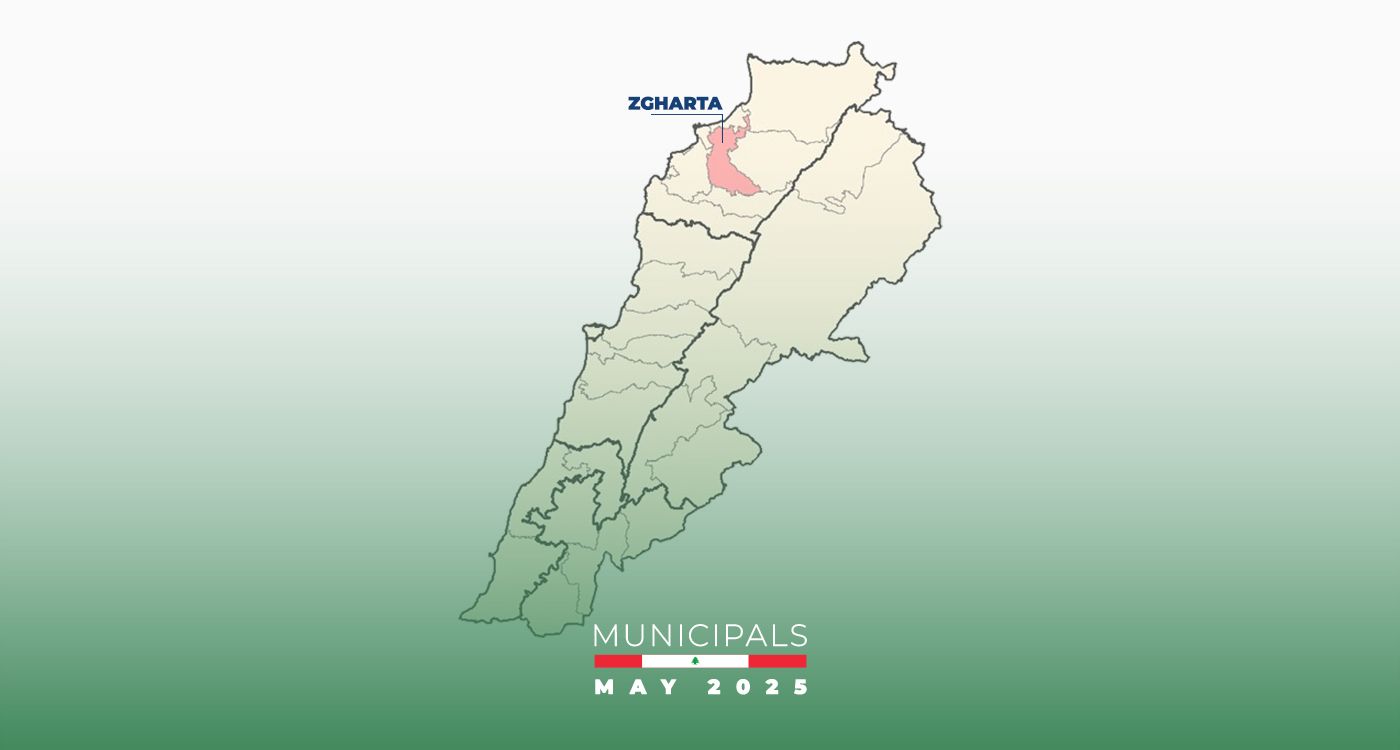
As municipal elections draw near, the caza of Zgharta is becoming a political battleground. More than just local stakes, the real contest is over control of the Federation of Municipalities.
In Zgharta district, municipal elections transcend local affairs. They become full-scale political battles, shaped by the deep-rooted rivalry between two major forces: the Michel Moawad–Jawad Boulos alliance and the Marada Movement, led by the Frangieh family. Nowhere else are family ties and politics so deeply intertwined. For decades, local dynasties have shaped the political landscape, with each electoral battle deeply tied to the family names that drive it.
So far, the Frangieh camp has managed to maintain control over key local institutions, notably securing the Zgharta municipality and the presidency of the Federation of Municipalities in the last four elections. But now, the dynamic appears to be shifting.
In 2016, a brief agreement was reached between the two camps, based on the results of the parliamentary elections. It quickly collapsed, prompting Michel Moawad and Jawad Boulos to withdraw from the municipal council—a move that left the Zgharta municipality in prolonged deadlock. Since then, the split has been definitive.
A source close to Michel Moawad's Independence Movement explains that “the movement is not waging the battle in Zgharta city as a strategic choice.” The historical influence of the Frangieh family in the city makes a victory unlikely. The Moawad camp plans to support a list made up of independents and civil society figures.
This strategic choice reflects a broader priority: securing control of the Federation of Municipalities, which brings together 25 of the district’s 32 municipalities. According to the source close to the movement, “this is the real battle today.” Each camp has already locked in support from 10 to 11 municipalities, while 2 to 3 “swing” areas remain critical in tipping the balance.
The two most decisive showdowns will take place in Ardeh and Rashiine, pivotal municipalities in the battle for the federation. In both towns, the Marada–Free Patriotic Movement (FPM) coalition is going head-to-head with the Lebanese Forces (LF) and the Independence Movement, with civil society groups also playing a role.
The Federation of Municipalities: A Major Strategic Stake
According to sources close to the matter, controlling the Federation of Municipalities is “seizing the second vital artery of development in the region.” This is due to the fact that Zgharta city and the federation receive the bulk of funding in the district. Meanwhile, some smaller municipalities have an annual budget of only about $3,000.
Since 1998, the Frangieh clan has maintained a firm grip on these two institutions. According to a source close to the Independence Movement, “$85 million, collected from citizens' taxes, have been spent over these 27 years with no tangible results for the district's development.” Most of these funds are said to have been allocated to clientelist jobs or fictitious projects, while “more than $40 million” were directed towards social aid for supporters, without clear criteria for distribution.
Today, Zgharta is overwhelmed by waste, water distribution has come to a halt and infrastructure is in ruins. “We know that going through the Zgharta municipality leads nowhere. So, we’re focusing on the only other viable option for any progress: the federation. It’s as simple as that,” says our source.
The Independence Movement bases its claim on its record, particularly through the concrete projects carried out by the René Moawad Foundation, which is active throughout Lebanon. This grassroots work, combined with the poor management of the region by their opponents, is seen as a key factor in the camp's renewed influence: out of the 32 municipalities in the district, they aim to win around 20, compared to just 4 or 5 in previous elections.
In the Zgharta region, the municipal elections serve as a gauge for a broader shift in power dynamics. The rivalry between the Moawad-Boulos camp and the Frangieh camp is evident. While the Zgharta municipality remains a tough stronghold to challenge, the true political battle is now being waged through the Federation of Municipalities.
A shift in control of this key structure could mark a major turning point in the balance of power—not just locally, but also in the lead-up to the 2026 parliamentary elections. Municipal federations in Lebanon are a strategic tool for local power, wielding significant financial influence and providing a network to engage voters.
In this context, a loss of control over the federation by the Frangieh camp—already weakened by national and regional political dynamics and underperforming in the last parliamentary elections—could deal a decisive blow to its political influence, both locally and on the national stage.




Comments